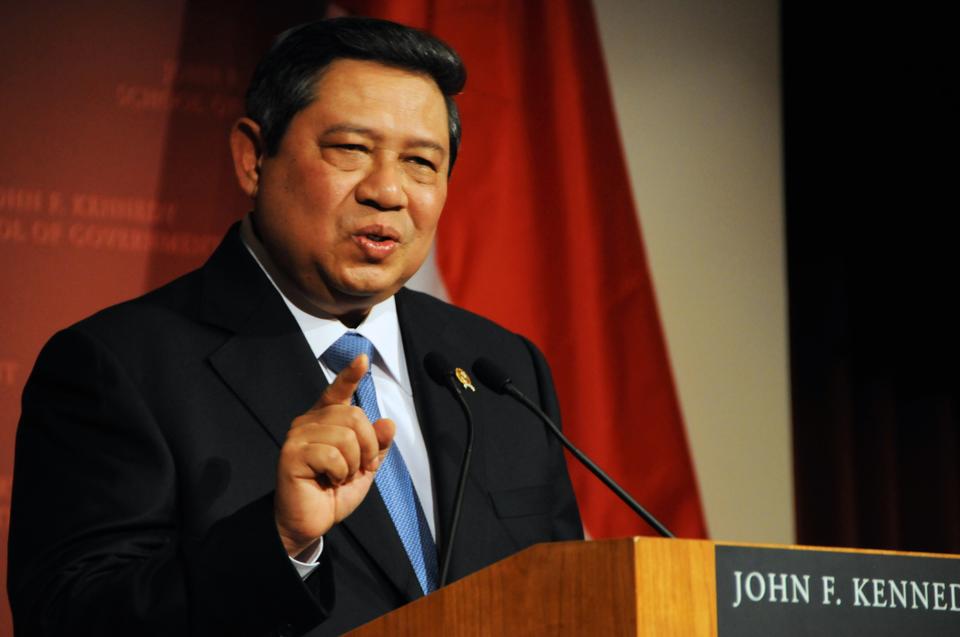
News
Pro-Palestine Encampment Represents First Major Test for Harvard President Alan Garber

News
Israeli PM Benjamin Netanyahu Condemns Antisemitism at U.S. Colleges Amid Encampment at Harvard

News
‘A Joke’: Nikole Hannah-Jones Says Harvard Should Spend More on Legacy of Slavery Initiative

News
Massachusetts ACLU Demands Harvard Reinstate PSC in Letter

News
LIVE UPDATES: Pro-Palestine Protesters Begin Encampment in Harvard Yard
Indonesian President Visits Kennedy School

Indonesian President Susilo Bambang Yudhoyono called for the use of “soft power” to resolve conflict among eastern, western, and Islamic civilizations and outlined nine global “imperatives” for promoting peace and prosperity in the 21st century in a speech at the Harvard Kennedy School yesterday evening.
“Cross-fertilizations of cultures can produce something wonderful,” Yudhoyono told the full-capacity audience. “The more we exchange cultures and ideas, the more we learn from one another, and the more we cooperate and spread goodwill, the closer we are to world peace.”
Indonesia is currently home to more Muslims than any other country in the world—over 200 million—and Yudhoyono touted the nation as emblematic of the potential success of democratic governments in the region.
Indonesia’s flavor of Islam is generally considered to be less austere than that of some Middle Eastern nations, and Yudhoyono’s government has succeeded in appealing to the moderate majority in an effort to undermine the political power of Islamic extremists.
“We can be a powerful example that Islam, democracy, and modernity can go hand in hand,” he said.
But the country has not been immune from the turmoil of extremist violence. As recently as July, bombers attacked two luxury hotels in Jakarta, killing at least nine and injuring over 50.
Throughout his remarks, Yudhoyono sought to characterize the future of international relations as one of peace and the mutual exchange of ideas. But he also drew attention to the shift in the global balance of powers away from Europe and toward Asia, whose economic growth in recent years has spurred calls for greater world recognition. Indonesia’s economy grew at a rate of over 6 percent in the past year.
One of Yudhoyono’s nine “imperatives” included a proposal to restructure the United Nations Security Council, in which four of the five countries with veto power are western nations.
Drawing a parallel between his remarks and President Barack Obama’s address to the Islamic world at Cairo University this summer, Yudhoyono said that America should continue to play a pivotal role in international relations. Even if the age of American dominance has ended, he said, the United States should exert economic, social, and political influence to “help make the world anew.”
Although Yudhoyono’s message of cooperation and global progress resonated with many audience members, some said they were disappointed by his lack of specificity, especially on how to solve the growing problem of global factionalism.
“He was very idealistic,” said Maxwell D.A. Dikkers ’13. “But he does seem to have a great vision of what he wants to get done.”
—Staff writer Athena Y. Jiang can be reached at ajiang@fas.harvard.edu.
Want to keep up with breaking news? Subscribe to our email newsletter.
